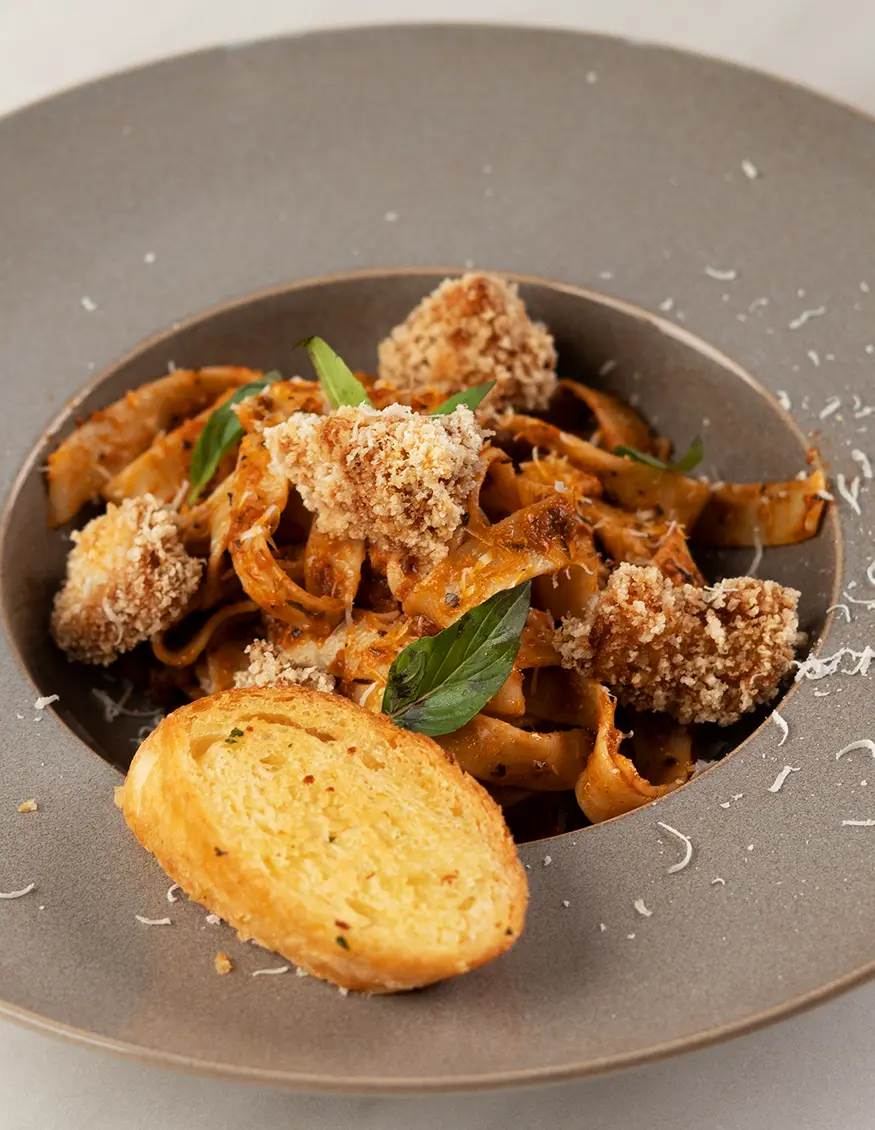Mushroom & Beef Ragu Pasta
Indulge in a culinary masterpiece with our Lion's Mane Mushroom & Beef Ragu Pasta, a delightful fusion of earthy richness and savory goodness. The Lion's Mane Mushroom, revered for its seafood-like flavor, lends a unique taste to this hearty dish. Succulent beef ragu, slow-cooked to perfection, complements the delicate notes of the Lion's Mane, creating a symphony of flavors. Tossed with al dente pasta, this dish is a celebration of textures and tastes, offering a gourmet experience for your palate. Elevate your dining with this delightful blend of land and sea!
Chef's Recommendations:
1. Do not overcook beef or it will become rubbery and very chewy.
2. Cooked Marinara sauce can be stored in refrigerator for 2 weeks and can be used with various dishes.
3. Marinara sauce can be cooked without salt and afterward, according to different dishes, you can adjust the taste.
Ingredients Main:
Marinara Sauce Ingredients:
Beef Ragu Ingredients:
Instructions
Boil the tomatoes until soft in the center then remove the skin and blend into a puree.
In a large skillet over medium heat, heat the olive oil. When it is hot, add garlic and onion.
As soon as it starts sizzling add tomato paste and saute for 2 minutes. (Do not let the garlic and onion brown)
Add in the boiled tomato puree and basil springs. Let it simmer on low heat for 6-7 minutes or until the raw flavour of tomato is not there.
Add oregano, red chilli, chicken powder, sugar and chilli garlic sauce. Cook for another 2 minutes
Cooking:
In a large skillet over medium heat, heat the oil. When it is hot, add garlic and onion.
Add in the marinara sauce and adjust the seasoning if required.
Boil the fettuccine noodles according to instructions on the pack. Add the boiled noodles to prepare ragu sauce.
Grate in parmesan cheese and add basil leaves to it. Cook on low heat for a few minutes
Serve on a pasta plate and top it with prepared mushroom nuggets.
Safety Instructions:
Always use sharp knife, when you use a dull knife to cut, you need to apply more force. As a result, the knife is more likely to slip and this increases the risk of injury.
In order to prevent contamination, it is important to clean your knife as soon as you’re done using it. Leaving your knife on your cutting board or in a sink full of soapy water clutters your kitchen and creates opportunities for contamination and injury.
Always use a cutting board when cutting ingredients. This will allow you to cut consistently and protect your work surface in the process.
Never leave your stove unattended while cooking. Stay in the kitchen while you're frying, grilling, boiling or broiling food. If you have to leave the room—even for just a moment—turn off the stove.





